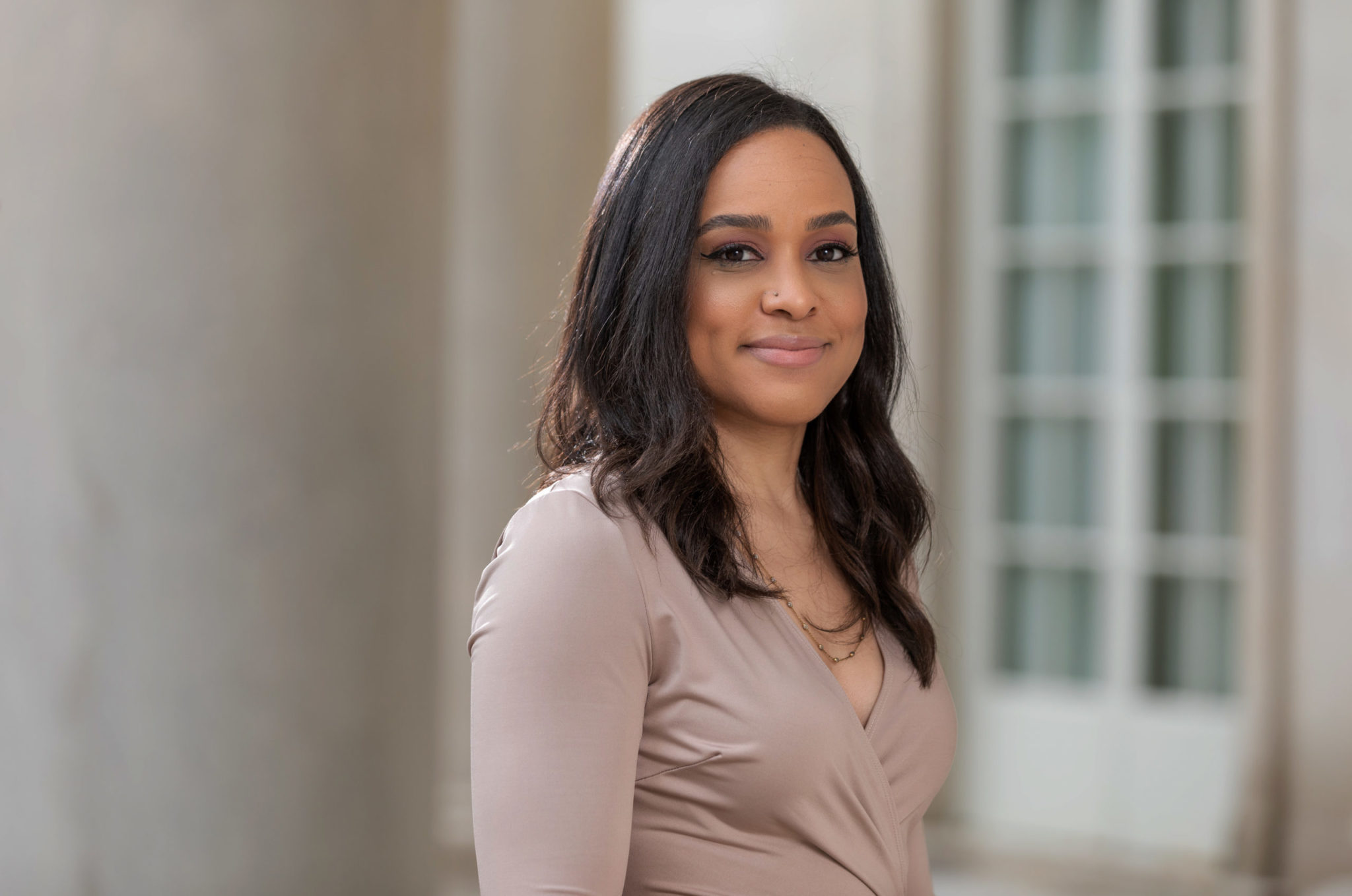Yale physicians take part in OpEd Project
The OpEd Project’s Public Voices Fellowship provides underrepresented thought leaders the opportunity and tools necessary to share their ideas and shape conversations in their respective fields.

Amanda Calhoun
Yale psychiatry resident Amanda Calhoun has recently published four opinion pieces in Time, MedPage and Psychiatry Times as a Public Voices Fellow with the OpEd project.
Calhoun’s pieces discuss intersectionality, racial disparities in the healthcare industry and the experience of being a Black physician. She is a member of the 2021-22 Public Voices Cohort at Yale, alongside her colleagues Emma Zang, assistant professor of sociology, and Ada Fenick, associate professor in the Department of Pediatrics. The OpEd Project aims to bring together leaders from underrepresented communities who can provide perspectives on important issues.
“Black people have been disempowered … and told inadvertently that the white perspective is the perspective and is fact… and it’s not –– it’s a perspective,” Calhoun told the News.
Through her opinion pieces, Calhoun wants to empower non-white, and more specifically, Black people. She hopes they can be inspired by hearing her stories about being a Black woman in the field of medicine.
Consistent with the OpEd Project’s mission, she wants to change who writes history.
“If you don’t write your story, someone will write it for you,” said Katarina Wong, associate director of fellowships at the OpEd project.
Calhoun noted that she writes her opinion pieces for Black children to feel empowered and to mitigate the trauma they experience due to the color of their skin. She said she feels a sense of urgency because she wants the trauma Black children experience to stop. Calhoun is often inspired by her family when she writes op-eds; she wrote about her brother in one piece, “My Brother Is Still Unvaccinated Because Our Medical System Is Ableist,” which was published in Time.
Ada Fenick, a pediatrician at the Yale School of Medicine, agreed with Calhoun on the urgency of ending Black children’s trauma. Her work addresses these traumas with patients and their families, she said.
In her recent opinion piece, “Remote work might solve the family care crisis for immigrants,” Emma Zang details her personal conflict of pursuing her dream of being a sociology researcher, but also wanting to be present for her family in China — a struggle she says is common in the immigrant experience. Zang attributed her success in publishing her op-ed to the advice she was given through the fellowship’s assigned mentor and workshops. These tips included how, when and where to pitch her story. The fellowship also offered advice on news hooks and shaping arguments, she added.
“People of color, women, immigrants, sexual minorities are underrepresented voices everywhere,” Zang said.
The OpEd Project was founded to provide women and marginalized groups the space to speak out and give their opinion in an arena where white men are historically overrepresented. The fellows said that they encountered some barriers and challenges when pitching their stories to publishers, but they found the Public Voices Fellowship to be encouraging.
When considering their audiences, the fellows wanted to reach people beyond their fields, expressing their joy at the opportunity to write in another form besides academic writing. This shorter form of writing gave fellows the opportunity to discuss topics that were more timely and newsworthy.
Through her work, Calhoun wants to make opportunities for everyone to be a part of who writes history and to provide a more accurate representation of it. Calhoun writes and advocates for diversifying voices to make the world safer for people who are non-white, she said.
“White people have written history,” Calhoun said.
She acknowledged that her storytelling may come off as “blunt,” but that this is purposeful in order to generate change instead of circling around racism through euphemisms. She hopes that when reading her pieces, people feel uncomfortable and fight the narrative that Black people should speak in a “palatable” manner. She emphasized that she hopes this discomfort will generate change.
“White people need to know the effects of racism and how their racist behavior is impacting us and they need to know that it is leading to Black people dying, leading to weathering, leading to increased allostatic load,” says Calhoun.
Calhoun is currently writing pieces to publish in high impact news media in order to build rapport and hopefully access a wider audience.
The cohort is currently in the middle of the fellowship and continues to produce media. The last workshop will be in April 2022.
Calhoun hopes to write a book one day about the Black and other marginalized people’s experience to empower others and to document a more accurate portrayal of history.
The OpEd Project’s Public Voices Fellowship at Yale has produced over 500 forms of media among its 126 alumni.







